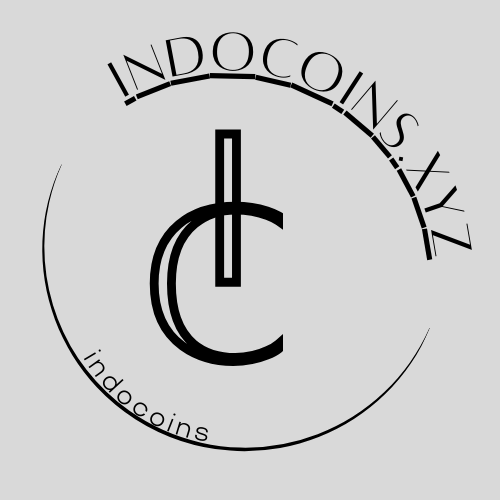Options
High-Value Asset Insurance: Secure Your Most Valuable Business Assets
In today’s fast-paced business environment, companies often own a wide range of valuable assets that are critical to their operations and success. From expensive machinery and commercial properties to cutting-edge technology and intellectual property, these assets represent significant investments. Protecting them from potential risks is essential, and this is where high-value asset insurance comes into play. This specialized insurance coverage ensures that your business’s most valuable assets are secure, providing peace of mind and safeguarding your company’s financial future.
1. What Is High-Value Asset Insurance?
High-value asset insurance is designed to protect businesses from financial losses due to damage, theft, or destruction of their most valuable assets. Unlike standard insurance policies that may not fully cover high-end or specialized equipment, high-value asset insurance provides customized coverage to meet the unique needs of businesses with substantial investments in physical and intangible assets.
Common Assets Covered Include:
- Machinery and Equipment: Industrial and manufacturing equipment, vehicles, and specialized tools.
- Real Estate and Commercial Properties: High-value buildings, factories, and offices.
- Technology and Electronics: Servers, data centers, computers, and specialized tech equipment.
- Intellectual Property: Patents, trademarks, and proprietary technology or software.
- Artwork and Collectibles: High-value items like art collections, rare antiques, or collectibles.
Pro tip: Businesses in sectors such as manufacturing, construction, tech, and healthcare should prioritize high-value asset insurance, as they often rely on expensive equipment and intellectual property.
2. Why Is High-Value Asset Insurance Important?
Businesses face a variety of risks, from natural disasters to theft or equipment breakdown. Without the right insurance, these incidents could result in significant financial losses. High-value asset insurance ensures that your company can recover quickly and continue operations, even after a major loss.
Key Reasons for High-Value Asset Insurance:
- Complete Coverage: Standard commercial insurance policies may have coverage limits that fall short of what’s needed to fully protect high-value assets. High-value asset insurance offers tailored coverage to ensure full protection.
- Risk Mitigation: Protects your business against unforeseen events like fires, floods, theft, or vandalism that could otherwise cause significant financial strain.
- Business Continuity: When key business assets are damaged or destroyed, the ability to replace them quickly is crucial to minimizing downtime and maintaining operations. High-value asset insurance provides the funds needed to repair or replace assets swiftly.
Pro tip: Review your business’s asset list regularly to ensure that all valuable items are covered under your policy and adjust coverage limits as your company grows.
3. Types of High-Value Asset Insurance
There are several types of high-value asset insurance that can be customized to fit your business’s specific needs. Each type of coverage addresses different risks and asset types, ensuring that all critical components of your business are protected.
1. Property Insurance
Commercial property insurance is essential for businesses that own valuable real estate, machinery, and other physical assets. This type of policy covers damage from events like fires, natural disasters, and vandalism.
- Who Needs It?: Companies with high-value commercial properties, factories, or offices.
- Coverage Examples: Protection for buildings, office spaces, warehouses, and retail locations.
2. Equipment Breakdown Insurance
Businesses that rely on expensive machinery or electronics for their day-to-day operations should consider equipment breakdown insurance. This policy covers the cost of repairs or replacement in case of mechanical failure or damage.
- Who Needs It?: Manufacturing plants, construction firms, tech companies, and healthcare providers.
- Coverage Examples: Industrial machinery, HVAC systems, and medical equipment.
3. Cyber Insurance
For businesses that store sensitive data or rely heavily on technology, cyber insurance is crucial. This coverage protects against data breaches, cyberattacks, and system failures, all of which could lead to significant financial losses.
- Who Needs It?: Tech companies, financial institutions, healthcare organizations, and e-commerce businesses.
- Coverage Examples: Loss or theft of customer data, system downtime, and ransomware attacks.
4. Intellectual Property Insurance
For companies that own intellectual property like patents, trademarks, or proprietary technology, this specialized insurance helps protect against legal costs related to IP infringement, theft, or disputes.
- Who Needs It?: Companies in technology, pharmaceuticals, entertainment, and design.
- Coverage Examples: Legal fees for defending IP claims, compensation for IP theft, or losses from IP-related litigation.
Pro tip: Customize your high-value asset insurance with a combination of these coverage types to ensure all your assets are adequately protected.
4. How to Choose the Right High-Value Asset Insurance Policy
Choosing the right high-value asset insurance policy requires a thorough understanding of your business’s assets and risks. Here are some important steps to take when selecting a policy:
1. Assess Your Assets
Begin by making a detailed inventory of your business’s high-value assets, including real estate, machinery, technology, and intellectual property. Assign values to each item and identify any risks they may face.
2. Evaluate Risks
Consider the specific risks your business is exposed to. This could include natural disasters, theft, vandalism, cyberattacks, or equipment failure. Understanding these risks will help you determine the level of coverage you need.
3. Work with a Specialized Insurance Provider
Not all insurance companies offer high-value asset insurance, so it’s important to work with a provider that specializes in this area. They can offer customized policies tailored to your industry and specific needs.
4. Review Policy Limits and Exclusions
Make sure the policy limits match the value of your business’s assets, and review any exclusions carefully to ensure there are no gaps in your coverage.
Pro tip: Consult with an insurance broker who specializes in high-value business assets to help you navigate the complexities of selecting the right policy.
5. Cost of High-Value Asset Insurance
The cost of high-value asset insurance varies depending on several factors, including the value of the assets being insured, the type of business, and the level of risk involved. Businesses with higher-value assets and greater exposure to risks will generally pay more for comprehensive coverage.
Factors That Influence Insurance Costs:
- Asset Value: The higher the value of the assets, the higher the premium.
- Location: Businesses located in areas prone to natural disasters may face higher insurance costs.
- Industry: High-risk industries, such as construction or tech, may see higher premiums due to the specialized nature of their equipment and technology.
- Deductibles: Choosing higher deductibles can lower your premiums, but you’ll pay more out of pocket in the event of a claim.
Pro tip: Balance your premium costs with the level of protection needed to ensure you aren’t underinsured in case of a major loss.
Conclusion
High-value asset insurance is a crucial investment for businesses that own significant assets. Whether it’s protecting expensive machinery, commercial properties, or intellectual property, this insurance provides the coverage needed to safeguard your business from unforeseen risks. By assessing your assets, understanding your risks, and working with an experienced insurance provider, you can secure a customized policy that offers peace of mind and financial protection for your most valuable business assets.

